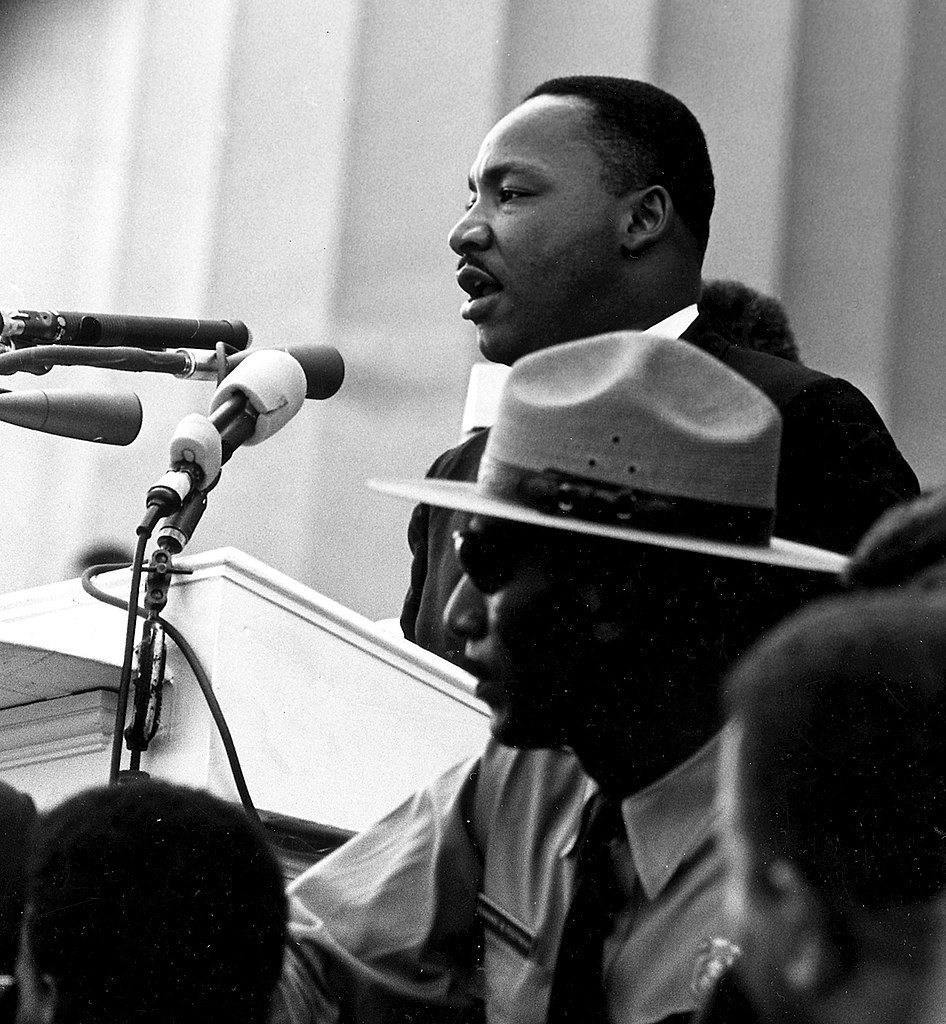Dr. King’s Words, and Trump’s
By • January 16, 2018 0 635

Yesterday, Jan. 15, the nation — those people most affected, most inspired and most hopeful for sure, but most others as well — celebrated the birthday of Martin Luther King Jr., the acknowledged sage and inspiration of the civil rights movement.
The martyred Dr. King — he was assassinated in 1968 — was admired, beloved and singular. Think of the march from Selma to Montgomery, the 1963 March on Washington and his fabled “I Have a Dream” speech, in which King envisioned the future in a way that seemed real and possible at an impossible time. Think of his missive from Birmingham Jail and of that statue, impressive and impassive, on the National Mall.
The celebration of his birthday as a national holiday was a long time coming. Republican President Ronald Reagan made it official in 1983. Its first observance followed three years later. King, a Nobel Peace Prize winner, has a permanent place in history, and in the imagination of Americans who value tolerance, peace, inclusion and freedom.
Time has altered the landscape of justice and liberty since 1983, but not as much as one might think. Although the celebration of Dr. King’s birthday is a day when many Americans fan out to places and sites of commemoration, to the statue on the Mall and the National Museum of African American History and Culture, there is still a long way to go during the presidential administration of Donald Trump.
Not the least of the reasons for that is the president himself, whose observations, comments and dealings with the still volatile issue of race in America have been controversial, no more so than during the time of the celebration itself.
For instance, President Trump, unlike some of his predecessors, did not participate as a volunteer in any community service activities.
Dr. King’s empowering and powerful words were shared widely, often spoken into the winter air on Monday, with people moved to tears and to hope and action. Words like: “I have a dream” and “We must accept finite disappointment, but never lose infinite hope” and “Love is the only force capable of transforming an enemy into a friend” and “Nothing in all the world is more dangerous than sincere ignorance and conscientious stupidity” and “The time is always right to do what is right.”
But it is a sign of the times that, as on almost every day in the first year of his administration, it was the Twittered and often twisted words of President Trump which took over center stage.
Who would have expected that an American president would give cause to be asked on that day the question: “Mr. President, are you a racist?”
But he was asked, and the question dominated most news broadcasts and dogged his every step, or so it seemed. It took away from the majesty of Dr. King’s words on justice and freedom, undermining his dramatic, even spectacular life of service.
Instead, although the president gave a perfectly fine set of remarks on the occasion, he retreated to Mar-a-Lago, played golf and tweeted about the accusations against him in an embittered tone. His accounts of comments he made last week changed from moment to moment, as did those of his supporters, Republican senators who were there for the occasion.
Allegedly, reportedly or most likely, the president, referencing the immigration issue which may yet bring the government to a halt, suggested that instead of allowing in large numbers of immigrants from “s—hole countries” such as Haiti and the nations of Africa, we should encourage people from countries like Norway to come.
As might be expected, the comments — not to mention the different accounts of what he said — lit a firestorm. President Trump said his comments were “tough,” but not the vulgar ones quoted by others.
Hence, yesterday, today and maybe for quite some time: “Mr. President, are you a racist?”
For the record, he said he was not. And furthermore, he was “the least racist person you’ve ever interviewed.”
In the end, the celebration of Dr. Martin Luther King’s birthday became a day when the president was questioned about his stand on race. This is where we are today.
It’s not too late, of course. Dr. King’s words still echo, as in: “The time is always right to do what is right.”

